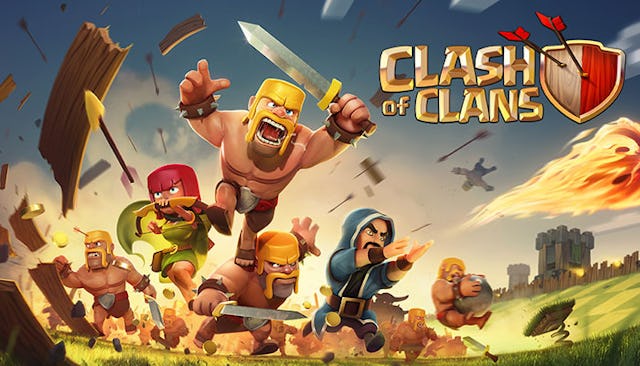Tween Tech: What Parents Need To Know About 'Clash Of Clans'

How many kids are using it: Thinkgaming.com puts the total number of daily players at 3.5 million. It’s hard to estimate how many are under 18, but Clash of Clans is all the rage at my kids’ school and among my friends’ kids as well. Last year, more than half of my daughter’s fifth-grade classmates were playing, while my second grader’s class had at least half a dozen players.
How kids are using it: Kids love the strategic elements of the game—building up their village and strengthening their troops—and the challenge of battling other players. The social aspect of forming or joining a clan is a big part of the game too, with players often lobbying friends to join their clan or leaving a clan to trade-up to a higher ranked one.
How parents can monitor it: First, know that in-app purchases are a huge part of this game. It is possible to play and progress without spending any money, but there’s a reason this ostensibly free game is iTunes’ top-grossing app! You’ll want to set limits on how much (if anything) your kids can spend.
Second, you’ll want to consider who is allowed in your child’s clan. Clans have an open chat window that cannot be disabled and is not monitored, so you could potentially have people anywhere in the world talking to your kid. Anyone can join a clan—some clans specify “kids only,” “no cursing” and similar restrictions, but there’s no way to enforce those rules other than to kick out bad actors.
The best option is to have your kids form their own clan and invite only people they know (others can still join, but the clan leader can quickly boot them out). I added the additional requirement that my kids’ dad, an avid Clash of Clans player himself, join their clan and keep an eye on the chatter. I also spot-check the chat window.
Last, there’s my least favorite feature, the global chat tab. This is a free-for-all, where players can talk to other players with very few filters. While offensive posts can be flagged, the punishment is that the offending player is banned for all of 24 hours. Harsh, right? Best of all, there’s no way to turn off or hide global chat (a feature the game’s creators really ought to consider if they want more kids playing). I forbid my kids from so much as glancing at this tab, but of course there’s no way to monitor whether or not they are reading or posting other than surprise spot checks.
Why parents can relax, a little bit: Some parents may not approve of the “attack”aspect, but I don’t actually find the game itself to be objectionable. Despite the warfare theme, there’s no graphic violence, and the strategic planning needed to achieve long-term goals, along with the cooperation required among clan members, offer good learning opportunities. And it’s fun.
Why parents should worry: Because my kids’ dad was playing and encouraged their interest, I didn’t do any research before I let them download the game—until my then-10-year-old casually mentioned that a player in her clan had told her to“fuck off.” She assured me that she had immediately kicked him out of the clan—that’s my girl!—but the incident made me realize I had no idea what was going on in this app.
I’ve since spoken with a number of parents about the game, and only a few were aware of the chat and in-app purchase issues. As long as you have the proper restrictions in place to prevent your kid from racking up insane charges (The Huffington Post reported a few years ago on 7-year-old twins whose parents got hit with a $3,000 iTunes bill!), keeping tabs on the chat activity is probably the biggest concern.
Specifically, I recommend talking with your kids about being careful not to share any personal information in a chat forum, but especially here, where they may not know whom they are talking with. That includes their ages, locations, email addresses, social media contact info, the name of their school, or anything else that could identify them or allow other players to contact them outside of the app. You’ll also want to make sure they select user names and clan names that don’t give away any identifying details. It might also be a good idea to remind your children that anyone they have not met in person is a stranger, no matter how much they interact with them on the Internet. You’d be surprised how many children do not know the difference.
A few other things to know: Clash of Clans, like many other games, can be addictive, so it’s a good idea to set some time limits on how much kids can play. And while rival clans don’t communicate directly during attacks and opponents are chosen randomly (so one player or clan can’t target another), younger kids in particular may find being attacked upsetting, so make sure they are having fun and not taking it too seriously.
This article was originally published on